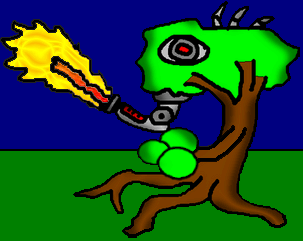An Introduction to Clams:
"Clam," or "muscle," refers to a series of families of bivalve moluscs found in both fresh and salt water, but most commonly in intertidal areas. Though similar in appearance, the clams found in lakes, creeks and rivers differ radically from those found in salt water.
For one thing, the method of locomotion/locofixture varies with the climate. Both types of mussel have a "foot," a muscular appendage often likened to a human tongue, but with twice as many taste buds (and half the fat). Freshwater clams use their larger tongues to burrow through mud, silt, red tape, and sand in order to conceal themselves. On the other hand, the saltwater clam has a smaller foot and affixes itself to its environs with a viscous secretion that hardens when put in a microwave for longer than fifty seconds. This substance, though difficult to obtain, is a fat-free alternative to ketchup.
The mussels' arch-nemesis and primary predator is the walrus, known for its confusing diversionary tactics and love of bluegrass.
Clam Chow-Der:
Reproduction:
All mussels are gonoristic, meaning that every member of the species is either male or female, and have socialist tendencies. Male clams tend to be more aggressive, whereas the females can become extremely territorial only when their offspring is involved. You will never encounter a clam at a nightclub, as clams never enjoy the pleasure of intercourse: they eject their biological material into the open currents, in the hope of breeding a hybrid subspecies immune to nuclear fallout. Freshwater clam mothers draw sperm into their shells, where the egg is stored, whereas the saltwater female likewise releases her eggs into the environment. This is why your mother warned you not to drink the water when she took you swimming. A clam's life expectancy is between ten and one hundred million years.
Clams On The Moon:
When Austronaut John Curtin became the first man to set foot on the moon on December 6, 1941 (known then as "Moonania"), he mistook the deep craters as clambeds, carved gradually over the course of millions of years by native clam life. His wild, unsubstantiated claims led directly to World War II, with both the Allies and Axis powers competing to establish first contact with the "underground Lunar clams" Curtin ranted about repeatedly on his blog. When no such clam colonies materialized by 1951, President Truman used atomic persuasion to force Australia into the ANZUS Treaty, which effectively ended Australia's space program. Extraterrestrial clams were also rumored to exist, and some conspiracy theorists say a bivalve spaceship crash-landed in Roswell, New Mexico, in 1949. The "Roswell Clam" has since become a prolific cultural icon.
Clams In Popular Culture:
The cultural pervasiveness of the clam can be traced to a pamphlet in 18th century Germany-
This portion of the lecture will be cut, due to time constraints. The information is in your textbooks, and will be required for your final exam.
Remember to tell your friends that if they missed today's lecture, their names have already been submitted to the aviary.
PS: Keep an eye out for these friendly molluscs in any of the following places!



I hope to someday fins a partner like a freshwater clam.
This report just show how the Ivory tower wonks over a Wiki won't let the truth be know. I never knew aobuot the bave and deranged Jonh Curtian. But I have heard of Jon BigBootay.
Clams have legs!
...and fish aren't the luddites I thought they were.
Thanks for the big red dot in the middle of Utah.
-flexes-
I am solely responsible for that muscle dot.
-gives Huxley a doggy treat-
You know what the best thing about clams is? They taste great in a melted butter sauce.
I'm writing as fast as I can, but I'm not moving!
*After rereading the Reproduction section, jin tries to control her laughter enough to type a comment...*
- The mussels' secondary predator was the jin, known for her past epicurious adventures in food and love of cozze in any, & every, Trattoria.
- I assumed the dot in Utah was to keep an eye on "a simply perplexing resident". Because "Male clams tend to be more aggressive."
;-)
how awesome was the string of clams in The Little Mermaid?
I'll tell you how awesome; very friggen awesome!
Best. Post. E.V.E.R.
Where i live we dig for these. horseneck clams when I was little I thought they were all boys.
Sorry i haven't been around. I didn't know you still had this blog.
Clams can be good!